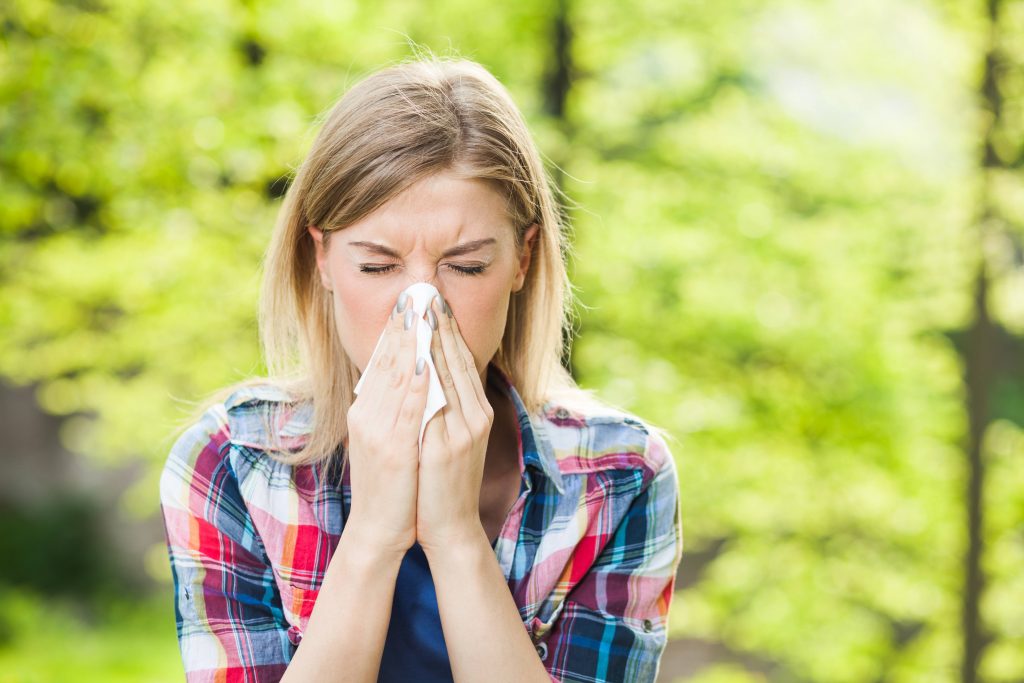-
Mayo Clinic Q & A
Mayo Clinic Q and A: Springtime allergies

DEAR MAYO CLINIC: I love the changing seasons and am looking forward to the warmer days of spring. Unfortunately, I am often miserable because of seasonal allergies. What can I do to keep the box of tissues at bay and enjoy the springtime weather?
ANSWER: As we flip the calendars to April and May, spring is in the air. Warmer springtime temperatures mean that trees bud, flowers bloom and grass grows. And people often are more active outdoors. But for many people like yourself, spring means a heavy dose of misery in the form of sneezing, watery eyes and stuffy noses.
Seasonal allergies, also called hay fever and allergic rhinitis, occur when your immune system reacts to a foreign substance such as pollen, animal dander or dust mites. Patients with allergic rhinitis will experience a flare in symptoms with exposure to their allergens. For those with spring pollen allergies, windy, dry days can be especially bothersome due to higher levels of airborne pollen.
To reduce severity of allergy symptoms, it can help to limit outdoor activity on such days and change clothing when returning indoors. Better yet, shower to rinse off residual pollen. Also, use your allergy medications prior to planned exposures.
You can find pollen forecasts for your area on local TV and radio stations, or the internet. If high pollen counts are forecasted, close doors and windows of your home and start taking allergy medications before your symptoms start. If possible, it can help to plan outdoor activities after a good rain, which clears pollen in the air.
Oral medications are especially useful for mild allergy symptoms, and many are available over the counter. Nonsedating antihistamines can relieve itching, sneezing, runny nose and watery eyes. They are generally well-tolerated with minimal side effects. If you find that one brand of antihistamine makes you sleepy, try a different one to see if you tolerate it better. Oral decongestants containing pseudoephedrine can temporarily relieve a stuffy nose and congestion, but they should be used with caution as they can cause insomnia and elevated blood pressure for some people.
For more persistent allergy symptoms, steroid nasal sprays are often the best treatment option. They block inflammation and swelling caused by airborne irritants and allergens, and prevent allergy symptoms.
Over-the-counter steroid nasal sprays include triamcinolone, fluticasone and budesonide. These medications usually start working after a few days and can take a few weeks to reach peak effect. It's best to use them consistently during your allergy season. It is fine to combine steroid nasal sprays with oral antihistamines if needed.
Be careful not to confuse steroid nasal sprays with decongestant nasal sprays, such as oxymetazoline (Afrin). Afrin-type sprays work well for rapid relief of severe nasal congestion, but they are addictive and can worsen nasal congestion when used too long. This type of nasal spray should not be used for more than three days in a row, and even then only occasionally.
If you suffer from itchy eyes, try over-the-counter antihistamine eyedrops. They are often more soothing when refrigerated. Oral antihistamines and steroid nasal sprays can help itchy eyes eventually, but antihistamine eyedrops often provide the most rapid relief.
If you have asthma along with allergies, inhaled medications will likely be an important part of your treatment plan. Some inhalers suppress the lung inflammation that causes asthma. Other inhalers, such as albuterol, dilate your airways to temporarily relieve asthma symptoms. Your health care team can help guide whether you would benefit from inhaler therapy.
If you are still miserable after using over-the-counter medications consistently, an allergist or immunologist can guide additional treatment options, including considerations for allergy shots. This treatment consists of a series of injections to improve tolerance of allergen exposure and reduce associated allergy symptoms over time. Allergy shots take months to start working and require a large time commitment, but their effectiveness in reducing the burden of allergy symptoms and medications needs is well-documented.
Follow these tips to combat seasonal allergies and you'll be able to enjoy all the pleasures this season has to offer — and leave your tissues at home. — Dr. Mansi Kanuga, Allergy and Immunology, Mayo Clinic Health System, Red Wing, Minnesota
****************************
Related Article
- Mayo Clinic Minute: How to get spring allergy relief published 4/8/22







